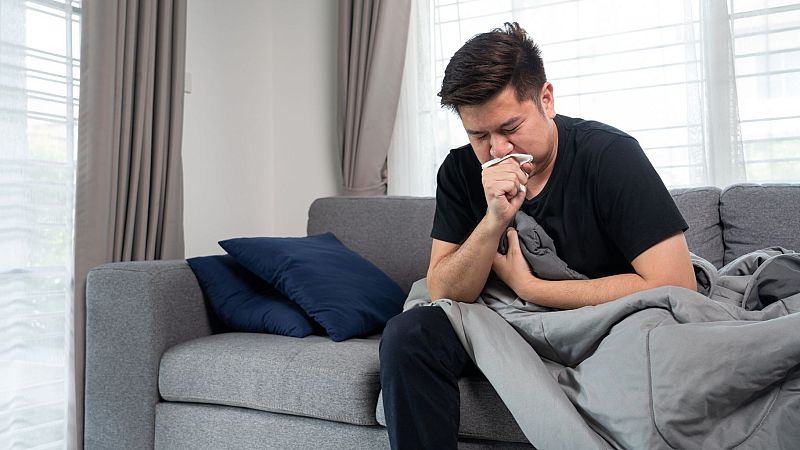
Summer heat, outdoor fun ... and cold and flu symptoms?
The three may not go together in many people's minds, partly owing to common myths about germs and partly because many viruses really do have lower activity levels in the summer.
But it is possible to get the sniffles – or worse – in the summer.
Here's what to know about summer viruses.
How much are colds and flu circulating right now?
The number of people seeking medical care for two common illnesses – flu and respiratory syncytial virus (RSV) – is currently low, according to data from the European Centre for Disease Prevention and Control (ECDC).
COVID-19 is trending up in several European countries, after a winter with limited circulation. Notably, though, COVID-19 hospitalisations and deaths are lower than a year ago.
ECDC data also shows the XFG variant – nicknamed stratus – is most common in the European Union, Iceland, Liechtenstein, and Norway.
Stratus can cause a “razor blade” sore throat and is considered a “variant under monitoring” by the ECDC and the World Health Organization (WHO).
The WHO said the variant is only marginally better at evading people's immune systems and vaccines still work against it.
The expectation is that COVID-19 will eventually settle into a winter seasonal pattern like other coronaviruses, but the past few years have brought a late summer surge, said Dr Dean Blumberg, chief of pediatric infectious diseases at University of California Davis Children’s Hospital in the US.
Do viruses spread less in the summer?
Many viruses circulate seasonally, picking up as the weather cools in the fall and winter. So it's true that fewer people get stuffy noses and coughs in the summer – but cold weather itself does not cause colds.
It's not just about seasonality. The other factor is our behaviour, experts say. Nice weather means people are opening windows and gathering outside where it's harder for germs to spread.
But respiratory viruses are still around. When the weather gets too hot and everyone heads inside, doctors say they start seeing more sickness.
In places where it gets really hot for a long time, summer can be cold season in its own right.
With stratus spreading, should you get another COVID-19 booster?
For people who are otherwise healthy, timing is a key consideration to getting any vaccine. You want to get it a few weeks before that big trip or wedding, if that's the reason for getting boosted, doctors say.
But, for most people, it may be worth waiting until the fall in anticipation of winter cases of COVID-19 really ticking up.
“You want to be fully protected at the time that it's most important for you,” said Dr Costi Sifri, of the University of Virginia Health System in the US.
People at higher risk of complications should always talk with their doctor about what is best for them, Sifri added. Older adults and those with weak immune systems may need more boosters than others, he said.
How else can I lower my risk?
The same things that help prevent colds, flu, and COVID-19 any other time of the year work in the summer, doctors say.
Spend time outside when you can, wash your hands, wear a mask. And if you're sick, stay home.







